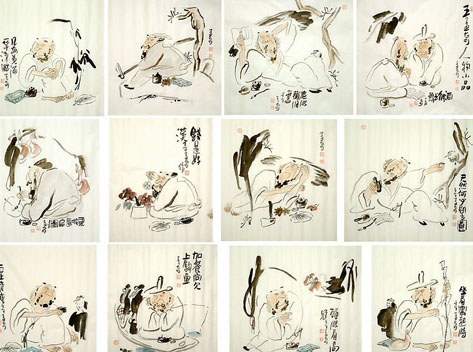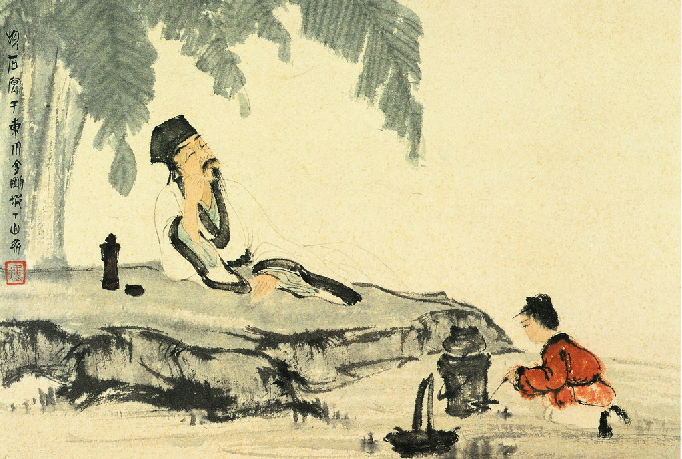
In Chinese history there is reference to tea as far back as 5000 years. While the origin of tea drinking is not really known, by most accounts the beginnings of the tea culture in China began around 2737 B.C. According to folklore the second Emperor of China, Shen Nung who studied plants and herbs was in the court yard when the leaf of the Camellia Senensis blossom dropped into his boiling pot of water.
A man before his time in reference to hygiene he boiled his water before drinking it. As he did not realize that the leaf had fallen into his pot of boiling water he drank some it and found it to be refreshing.
Tea was originally consumed for its medicinal properties. Used as an herbal medicine the Chinese added the leaves to their food to provide nutrients or as an antidote for poison. It is also known for its benefits of aiding digestion, which is why Chinese prefer to drink tea after their meals and also aids in nervous disorders. Another benefit of drinking tea is it helps to expunge nicotine from the bodies of smokers faster.

The first written reference to the consumption of tea was in 350 A.D when Kuo D'o' updated an old Chinese dictionary. At this time tea was made of leaves and was usually boiled with ginger, orange and other things for flavour. Tea at this time was in the form of green tea. In the interior part of China people compressed the tea into bricks and used it as currency to barter. From 350 A.D to 600 A.D demand greatly increased, outstripping supply. Farmers began growing tea in the Szechwan district.
During the Tang Dynasty 618 907 A.D tea drinking evolved into an art form. The tea culture was highlighted in a book by Lu Yu 780 A.D called the Ch'a Ching or the Tea Classic. The book covered everything from how to grow tea plants and cultivate them, brewing of tea and a complicated formal tea ceremony which used twenty seven pieces of equipment. Because of the complexity of the ceremony only wealthy connoisseurs, such as scholars, officials and members of the royal court who studied the teachings of Confucius could afford the equipment.
With the availability of tea the tea culture spread throughout China with all walks of life able to enjoy tea with the different grades of tea from the cheapest to the priceless. Tea preparation became standardized. With the drinking of tea many intellectuals have gained inspiration. People found that tea drinking enhanced their health, emotions were soothed and elevated and perception was heightened.
